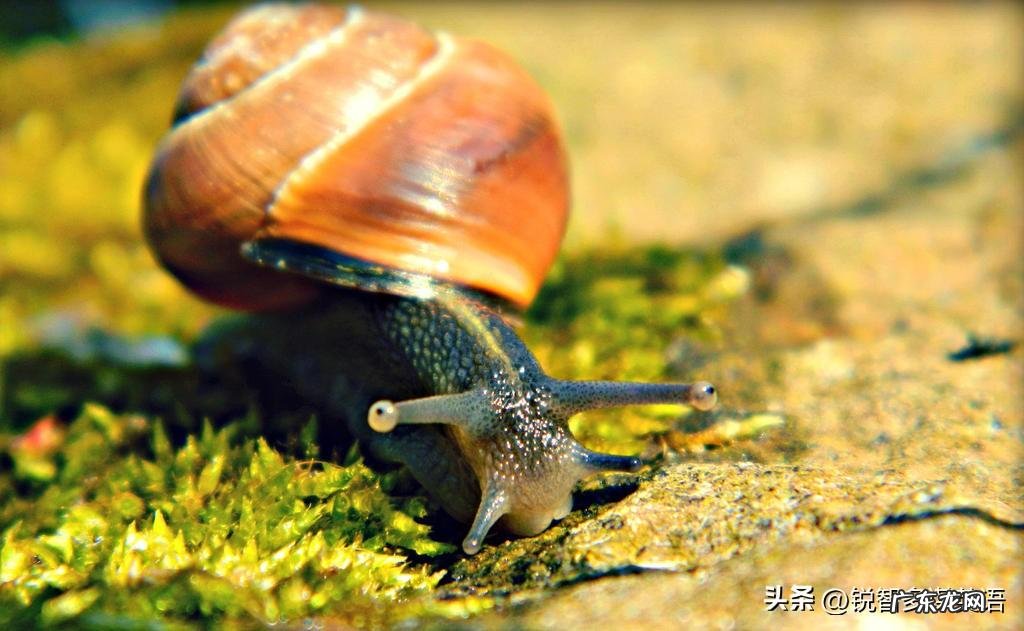中英文成语意向差异众所周知 。两种文化找到完全对应的意向十分罕见 。如中文“热锅上的蚂蚁”,英文的表述为“A cat on the hot brick”;中文“瓢泼大雨”,英文的表述为“It rains cats and dogs”等等 。所以只有谙熟中英文化才能避免理解上的尴尬 。
1. At a snail’s pace 龟速前行Meaning: Moving very slowly. 涵义,运动迟缓 。(汉语中用“龟速”替代“蜗牛” 。)
This idiom is pretty self-explanatory because we know that snails and slugs move very slowly. This idiom has been used for a very long time. The phrase is found in William Shakespeare’s play “Richard III,” which was written and first performed in 16th century England.
这个习语不言而喻,因为我们知道蜗牛和蛞蝓移动得非常慢 。这个成语已经使用了很长时间 。这个短语出现在威廉·莎士比亚的戏剧《理查三世》(Richard III)中,该剧于16世纪在英国创作并首次演出 。
Example: Traffic is moving at a snail’s pace. 例如,车辆龟速爬行 。(汉语用“龟速”替代“蜗牛” 。)

文章插图
2. Busy as a bee 忙得不可开交Meaning: Extremely busy. 涵义:非常繁忙 。
This idiom originated from Chaucer’s “Canterbury Tales” (specifically, “The Squire’s Tale”) which was written around 1386. The English is very old, but the phrase remains popular to this day.
这个成语起源于乔叟写于1386年左右的《坎特伯雷故事集》(特别是《乡绅的故事》) 。英语非常古老,但这个短语至今仍然流行 。
“Lo, suche sleightes and subtilitees
In wommen be, for ay as busy as bees.”
“瞧,女人们的诡计多端和狡猾,像蜜蜂一样忙碌 。”
The above language looks very different from modern English, but the animal idiom is exactly the same. Today, the phrase is used to describe someone being very busy, but working with a purpose in a pleasant manner.
上述语言看起来与现代英语非常不同,但动物习语完全相同 。今天,这个短语被用来形容一个人很忙,但以愉快的方式有目的地工作 。
Example: My son is working on his science project. He’s been as busy as a bee all day.
例如:我儿子正在做他的科学项目 。他一整天都忙得不可开交 。

文章插图
3. Open a can of worms 弄成一团糟(弄巧成拙)Meaning: Create a whole new set of problems该成语含义为“弄巧成拙” 。
This phrase is often used when you try to solve a problem or answer a question, but you only create more problems or more questions.
当你试图解决一个问题或回答一个问题时,经常使用这个短语,但你在解决问题时只会弄巧成拙 。
Nobody is sure of the exact origin of this idiom, but some people believe it came from a time when fisherman bought canned worms for bait. They would bring the worms to the fishing site, but if they knocked the can over, they had a whole new problem of catching their bait.
没有人知道这个成语的确切起源,但有些人认为它来自渔民购买罐头蠕虫作为诱饵的时代 。他们会把蠕虫带到捕鱼地点,但如果他们把罐子打翻了,他们就有了一个全新的问题:如何抓住鱼饵 。
Some also believe that “can of worms” is a modern version of the idiom, “Pandora’s box.” Pandora’s box comes from an old myth, and it also means to create a new set of problems.
一些人还认为“一盒蠕虫”是成语“潘多拉盒子”的现代版本 。潘多拉的盒子来自一个古老的神话,它也意味着制造一系列新的问题 。
Example: You’ve opened a real can of worms here.示例:你在这里将事情弄巧成拙 。
- 带可字的女孩名字寓意 带可字的女孩名字
- 代签合同有效吗 签合同可以代签吗
- 红花继木移栽多久可施肥 红花继木怎么施肥
- 靠墙摆放的沙发可以带来什么运势提升
- 月季花都可以爬藤吗 爬藤月季花怕晒吗
- 分家协议书是否可以当成遗嘱
- 债权人可以随时要求履行债务吗
- 无配偶的人是否可以收养孩子
- 可以请求婚姻无效的有什么人
- 迎春花11月可以移植吗
特别声明:本站内容均来自网友提供或互联网,仅供参考,请勿用于商业和其他非法用途。如果侵犯了您的权益请与我们联系,我们将在24小时内删除。
